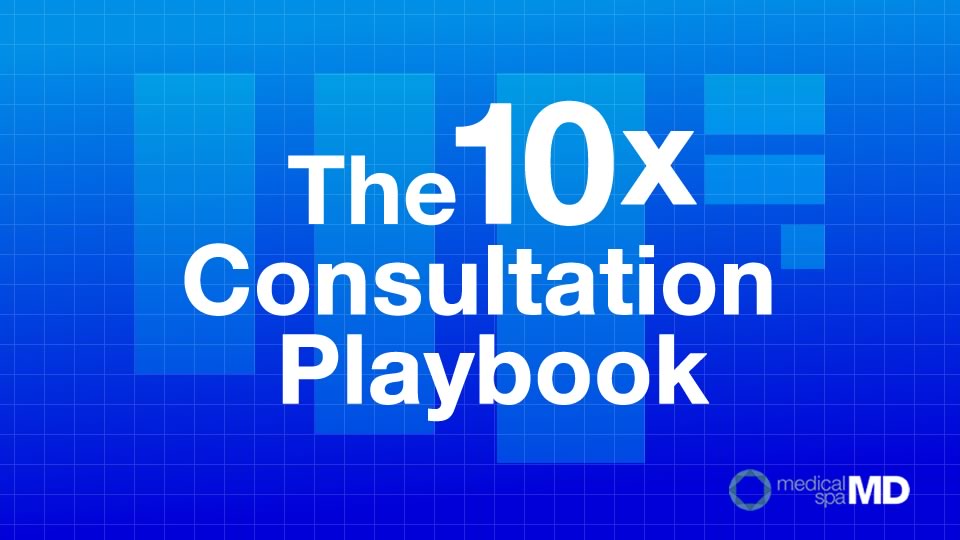Aligning Your Staff's Best-Interests With Your Clinic's Needs
Top performers are leaders. Average performers just pay.
If you think that anyone works for you, well, news flash - they don't. They all work for themselves, just like you do.
Your job, as a business owner, is to align what they perceive to be in their own best interest with your business goals. This will always include money, but there are other areas where you can have a drastic impact. Workload, environment, professional and personal satisfaction, advancement and training, reputation... your goal is to make your staff believe that making your clinic excel is the most closely aligned with their desired path forward. Do this, and you're going to have a motivated team.
If you can't do this, you're going to have constant turnover and you'll lose income. Your staff may comply with your demands, but they're working for a paycheck, and it only takes a single arched eyebrow or eye-roll to cost you a $4,500 package sale or destroy a reputation with a patient. Multiply that by every patient interaction and you'll see a significant problem.
What's the difference?
Leaders understand that everyone works for themselves. They understand that leadership is given by those willing to follow from the bottom up. Leaders have to live up to very high standards to be worthy of being followed, and they work at it constantly.
Average performers think that their staff works for them. They have 'authority' that flows from the top down, but they're not leaders because they're not worth following. People work simply for a paycheck and will leave as soon as something better comes along.
What can you do?
- Work hard to be be someone that others are willing to follow. It's not easy and there are challenges. You'll occasionally be taken advantage of but much less so if you just take the authority route.
- Implement systems in your clinic that get your head above the ground and allow you to focus on bigger picture goals.
- Constantly talk to all of your staff members. Be aware of changing attitudes that may signal a problem. Ask them how aligned they think they are with the clinic. Most people will be very open if they sense that you're interest is genuine.
- Empower them to make decisions, and use policies to make sure that everyone knows which types of decisions they can make.
- Get better at interviewing people and asking the right questions.
- Fire faster. Firing is difficult and most people wait until there's real damage being done.
- Make sure you understand common embezzlement and employee scams. Forewarned is forearmed
When you've aligned your team you'll feel like you're running downhill. Everything is just easier.
Destroying Competitors With Asymmetrical Competition
Top performers make it happen. Average performers hope, and hope is not a strategy.
Like it or not, cosmetic medicine is a business, and that means that it's going to be increasingly competitive as treatments and services become commoditized and prices drop leading to increased competition.
Asymmetrical Competition is finding and exploiting game-changing opportunities that your competitors can't easily match or compete against.
When we began opening clinics in new locations we devastated the existing clinics run by clinicians who were taking their patient populations for granted. These physicians (mostly plastic surgeons and dermatologists at the time) expected that they would simply inherit all new cosmetic treatments as part of their current fiefdom of "aesthetics".
They couldn't respond or adapt to the playing field we created.
Rather than position ourselves as competitors to existing practices we redefined the market and positioned ourselves as the experts in nonsurgical cosmetic technologies. We positioned the existing plastics and derm clinics as experts in surgery and dermatology, and we took everything else. The competition didn't have an easy answer since what we were doing was a fundamental change that they couldn't respond to or reproduce.
We focused with absolute madness on keeping appointments on time, on incredible patient services, and on giving power to our patients. We built systems that put our clinics on autopilot and allowed us to easily scale. We empowered our staff to make any decision, as long as they could explain that it was in the best interests of the clinic. We initiated corporate programs, free educational seminars and consults, incredible comfort and atmosphere, and we took all design and marketing seriously. We trained our staff to perform consultations based on sales and service that crushed our goals while turning our patients into raving zealots. We embraced social media and email. We answered questions and posted our pricing right on our website. In short, we did everything that they couldn't do.
Of course they adapted and started trying to copy us, but they couldn't actually compete. They didn't have the systems, or the desire.
Asymmetrical Competition is available to you as well. You just need to look at what your capabilities are and match those to the market's need. Most clinics don't have the ability to change. They're essentially locked in place and that always presents you with opportunities to exploit areas that they can't adapt to.
As a Medical Spa MD Member you have assess to a wealth of information and know-how about building your clinic. Special offers from partners when you're buying your next laser or IPL, group-buy wholesale pricing on fillers and injectables, software deals, design & marketing services.
Be smart and take advantage of it all.
Note What's Not On This List
The cosmetic medical market has matured in the last 15 years, but 5 areas above are not entirely tied to medicine, they're really business strategies. You won't find "improving patient outcomes" here because those are simply table stakes.
Patient Outcomes - You can't build a business marketing better patient outcomes.
Outcomes are what the patient says they are. You can have a perfect outcome but if the patient expectations are unrealistic, the 'outcome' from the patients point of view can still be negative. Trying to build your clinic and reputation only through your technical prowess is essentially a dead end because it's beyond your control.
(Now I'm not saying that this is not a priority and shouldn't be your focus, but I am telling you that trying to convince your patient population that you're 'better' than the competition makes you seem small and petty and is only a part of what a successful strategy looks like.)
Technology - Not a determining factor in your success
There are successful clinics using every platform.
Choosing the right technology is important, and can save you money, but the lasers and IPLs that you put in your clinic are all producing the same light waves. There are differences; customer service, cost, consumables, and usability, but none of those will either put your clinic out of business, or make you more money on their own. It's reasonable to let laser companies help pay for some of your marketing, but don't make the mistake that they're going to really help you much. patients don't buy based on which IPL you're using, they buy from someone they know, like, and trust.
If you're looking to save money and find a reputable vendor of used devices, contact anyone in our used cosmetic lasers classifieds who is a member of our Certified Partners program and you'll get a great deal. (And if you have a complaint you can contact us directly as a Member and we'll intercede on your behalf.)
Price - The death spiral of lowest-pricing.
Do not hitch your wagon to being the low-cost provider unless you love being on the verge of bankruptcy at all times. There can only be one lowest price in any market, and everyone who will come to you because of price will leave you just as fast. If you can't justify higher pricing then put the work in to build a clinic that does.
Conclusion
In future posts we're going to dive into these areas in detail and help you take actions to improve them.
Have some thoughts on this or anything to add? Leave a comment. I read them all.






























